August 24, 2022 ✒ Andrew Kantor
If people around you seem a little more … out of it these days, there might be a good reason. Americans are using more hallucinogens — from 2002 to 2019, usage overall went from 1.7% of the population to 2.2%. Okay, not a huge jump. But among 18–25 year olds it more than quadrupled — from 0.9% to 4.0%. That means, say Columbia University psychiatric epidemiologists, that more than 5.5 million US adults are taking LSD, ecstasy, peyote, Red Devils, shrooms, Fantasia, Special K, ayahuasca, Angel Dust … you get the picture. And, with the potential for hallucinogens to treat depression, you can expect that number to keep rising. q Methadone can save opioid addicts — it can break their addiction. But UGA College of Pharmacy researchers found that “four of the five Georgia counties with the highest opioid overdose death rates don’t have a methadone clinic accessible within a 15-minute drive.” There might be a way to stop food allergies in their tracks, and it’s all about the gut bacteria. Healthy bacteria produce a compound called butyrate, and butyrate can prevent an allergic reaction to food. Ergo, to prevent allergic reactions, make sure people have enough butyrate. The hard way: Give them a fecal transplant with the right bacteria. The other hard way: Give them a butyrate pill. “But butyrate has a very bad smell, like dog poop and rancid butter, and it also tastes bad, so people wouldn’t want to swallow it.” (Indeed.) The (potential) easy way: Create a new delivery system for butyrate*, which is what University of Chicago chemists say they’ve done. The resulting compound goes down easy (or can be injected) and the butyrate is released by digestive juices. Result: “The treatment restored the gut’s protective barrier and microbiome […] and prevented a life-threatening anaphylactic response when they [the mice] were exposed to peanuts.” And it’s not limited to peanuts, they say — it should work for any food allergan. (Standard disclaimer: I take everything out of the American Chemical Society with a grain of salt, but still, this is clearly interesting news, assuming it’s not hype.) We’ve had an inkling for a while that there’s a connection between salt and hypertension, but the details are only now emerging. Cutting to the chase: Researchers at Vanderbilt University have found that a high-salt meal will cause a spike in blood pressure in half of people who have hypertension, and in a quarter of people who don’t. Why? They have a slightly different receptor in some immune cells, and what they have is super-extra-very sensitive to salt. For those people, a large McDonald’s fries can cause a burst of inflammation … and a potential heart attack or stroke. At the the sensitivity can’t just be switched off, but it can be tested for, meaning folks with that salt-sensitive phenotype can switch to bland meals, at least for now. Sugar makes you fat. Fat can make you fat. But you know what else can cause obesity? According to a University of Colorado researcher, too much salt and too little water. What do those have in common? Thirst — they cause dehydration. And dehydration encourages the body to create fructose from both carbs and starch. It also gets the body to produce more vasopressin, which stimulates fat production to store water. Together … well, unless you’re in survival mode, they spell obesity. Naloxone can stop an opioid overdose in its tracks, and it’s available free in some places thanks to government grants, private charities, and good Samaritans. But not everywhere, and that means people die or end up in hospital because they can’t afford to carry it. In fact, found researchers at the Rand Corporation, for people without health insurance, the out-of-pocket cost for a single naloxone prescription hit $250 in 2018. While many states have adopted laws to make it easier to prescribe and dispense naloxone, less attention has focused on potential financial barriers to naloxone access. Reminder: Naloxone does NOT require a prescription in Georgia. (Read more.) If you’re looking for to give grandma or grandpa a scare, leave this article out for them. It seems that weak electrical currents delivered to the brain via the skin — this particular process is called transcranial alternating current stimulation, or tACS — can help fight the effects of memory loss in seniors. By zapping the brain in precise regions with unique frequencies of alternating current “we could improve either short-term or long-term memory separately. And with this intervention across four consecutive days, we could change memory and watch the benefits accumulate.” Are you ready to rewrite your will now, Granddad? Two stories within a few days, and both tout a potential vaccine for RSV — respiratory syncytial virus, which kills more than 100,000 children and sends 3.6 million to the hospital each year. Niversimab, out of the Telethon Kids Institute in Australia: [A] long-lasting monoclonal antibody treatment for babies is likely to be accessible on the market within 12 months, followed closely by the approval of a maternal vaccine given in pregnancy to provide newborns with protection against the virus. CAF-08/RSV, a new protein-based vaccine out of Boston Children’s Hospital: [It protected against a direct challenge with RSV, with no evidence of any harm to the animals. Further studies showed that it induced Th1 cells and CD8+ T cells (also important in inducing cellular immune responses) that specifically recognized RSV, as well as neutralising antibodies. Would you believe that there are pharmacists who are frustrated working with insurance companies and PBMs? Apparently so — and (slowly) some are going cash-only … and their patients like it. As patients struggle with rising prescription drug prices and insurance deductibles, everyone from members of Congress to entrepreneurs like Mark Cuban and small-business owners like [pharmacist Nate] Hux are trying to lower drug costs. By opting out of the insurance system altogether, Hux and other cash pharmacy owners are able to avoid many of the fees and rules that inflate medication prices. Consumers say they are reaping the benefits. Interesting: The pharmacist in the story runs ‘regular’ and cash-only pharmacies next door to each other and ”advises patients which of his two side-by-side pharmacies will be the best place to fill their prescriptions.” “Our job is to drive down costs on behalf of the consumer and those paying the bill for health insurance.” —JC Scott, president, Pharmaceutical Care Management Association. Zapping grandpa’s memory, pharmacies go cash-only, food-allergy breakthrough, and more
Gotta get away
UGA: Methadone hard to get in Georgia
A cure for food allergies?
* You want the science? Fine: “They polymerized butanoyloxyethyl methacrylamide — which has a butyrate group as a side chain — with methacrylic acid or hydroxypropyl methacrylamide. The resulting polymers self-assembled into aggregates, or polymeric micelles, that tucked the butyrate side chains in their core, thus cloaking the compound’s foul smell and taste.””
Salty news
Salt and your blood pressure
Salt and your weight
Naloxone priced out of reach
Shocking seniors
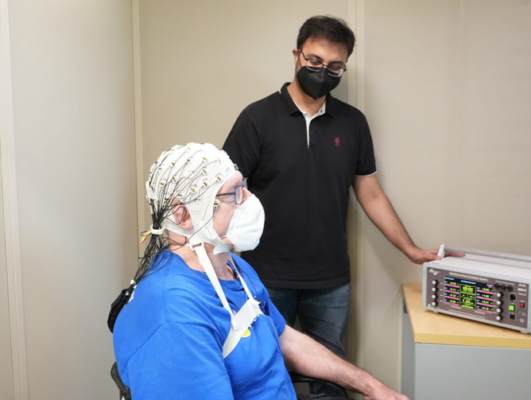
RSV vaccines coming Real Soon Now
The Long Read: Cash Only Pharmacy edition
Just because it’s your job doesn’t mean you’re actually doing it RIGHT

August 23, 2022 ✒ Andrew Kantor
That’s because everyone’s membership expires August 31! Don’t let that happen to you. Not only will the cool kids laugh at you behind your back, you’ll no longer be supporting GPhA’s advocacy — you’ll be abandoning the fight to protect your practice and your patients in the state legislature, like a puppy left outside a firehouse. And don’t forget all that sweet, sweet CE GPhA offers — hot topics and awesome instructors. Heck, the discounts you get on CE, networking, and events means membership pays for itself! It must be true because we underlined it. You’ll also stop getting GPhA Buzz — and a Buzz-free diet has been associated with smaller brain volume and grouchier disposition. The point is, we need you, and you need GPhA. You complete us. So please, look for your renewal invoice in your (paper) mailbox and send it in ASAP. Or you can skip the wait and head to GPhA.org/renew and do it all online. Here’s a cool Georgia story in the national news: In and around Clarkston, refugees from places like the “Democratic” “Republic” of Congo, Myanmar, and Syria have been vaccinated against Covid-19 at higher rate than not only the state, but the country. According to data compiled by the Prevention Research Center at Georgia State University, 70% of Clarkston residents were fully vaccinated as of July. In DeKalb County, where Clarkston is located, that number was 62%. The Georgia share, 57%, is among the nation’s lowest. [About 67.9% of Americans are vaccinated overall.] Let’s say you have a rat with hypertension. Based on some initial, basic research, those shifty Danes have shown that you might protect it from kidney disease with everyone’s favorite amino acid, lysine that’s often caused by high blood pressure. The researchers (from Aarhus University) are careful to point out that this is only preliminary — “We don’t know the side effects or the underlying mechanisms yet, and human metabolism is much more complex than a rat’s metabolism” — but it’s also a big step toward understanding kidney metabolism and potential treatments for kidney disease. WHO says monkeypox vaccine isn’t 100% effective. Treating cancer with PI3K inhibitors is a risky business — they’re dangerous enough for the liver that the FDA requires an ‘increased risk of death’ warning. But what if you could slip the drugs past the liver to its target, like the Wehrmacht slipping around the Maginot Line*? That’s just what radiology researchers from the University of Michigan have done. They created a kinase inhibitor — a dual PI3K and MAPK inhibitor— that’s absorbed by the lymph nodes, bypassing the liver altogether. The lead researcher calls it “the world’s first kinase inhibitor that’s lymphatically absorbed.” They’ve tested it on mice (it did well), and now they’re working on understanding its mechanism in detail … while launching a company to eventually make money from it, of course. Fauci is stepping down in December, as expected. [insert 45-minute retrospective of the pandemic here] How’s our flu season gonna be? Ask the Aussies — they get it first, thanks to that whole southern hemisphere thing. It’s winter there now and their flu season is pretty darned bad. This is great news for the news, which can run headlines like, “Australia’s Bad Flu Season Raises ‘Twindemic’ Concerns For U.S. Winter 2022.” To be fair, the last time we expected a (gosh I hate this word) “twindemic,” it fizzled — we were all masked up and keeping our distance. But this year, well…. The FDA has expanded its authorization of the Novavax Covid-19 vaccine to 12–17 year olds. That is all. It wants FDA approval for the Omicron BA.4/BA.5 booster version of its vaccine (although it hasn’t actually started clinical trials yet). Computer chips keep getting cheaper and faster — that’s Moore’s Law* at work. Drugs, though, do the opposite — they get more expensive to create and market over time. In fact, despite ginormous technological advances, the cost of bringing a new drug to market “has increased exponentially in the last several decades.“ Meet Moore’s Law’s evil cousin: Eroom’s Law. Based on actual data, “Eroom’s law states that the inflation-adjusted cost of developing a new drug roughly doubles every nine years.” What’s the solution? Computers, of course.Sneaking drugs past the liver, annual ‘twindemic’ warning, Georgia refugees get vaxed, and more
If you’re reading this, your GPhA membership is about to expire*
* unless you’re one of the 239 that have already renewed!
Please don’t abandon us
Clarkston refugees are a vaccine win
Lysine saves kidneys (maybe)
Huge shocker
Skip the liver, treat the cancer
* Too soon?
ICYMI
Twindemic: This time for sure
Vaccine news
Novavax for teens
Pfizer says it’s booster is ready
The Long Read: Eroom’s Law edition
* ‘The number of transistors in a dense integrated circuit doubles every two years.’
August 20, 2022 ✒ Andrew Kantor
Bald men are sexy — that’s not up for debate. But if for some reason you want to grow hair back, there’s minoxidil cream. Pro tip, though: It works better orally. Minoxidil has to be converted to an active form by sulfotransferase enzymes that may or may not be present in sufficient quantities in hair roots. When the drug is taken orally, it is automatically converted to an active form. The dose is incredibly small (we’re talking a fraction of even the lowest-dose pill), and it’s an open secret among dermatologists. But don’t expect it to be marketed that way. “Oral minoxidil costs pennies a day. There is no incentive to spend tens of millions of dollars to test it in a clinical trial. That study truly is never, ever going to be done.” The Dora Milaje look awesome wherever the Dora Milaje find themselves to be. Old folks say Medicare should pay pharmacists to provide a bunch more testing and treatment services. A survey from the absolutely unbiased Future of Pharmacy Care Coalition found that 82% of older Americans want the government to reimburse pharmacists so they can provide testing and treatments for Covid-19, flu, strep throat, and other infectious diseases. (In fact, 54% of them felt strongly about it.) Local note: Georgia’s Congressman Buddy Carter is part of a bi-partisan group that has introduced a bill — HR 7213, the Equitable Community Access to Pharmacist Services Act — that would do just that. Let’s play ball — or at least watch the second-place Atlanta Braves play the first-place New York Mets in the final game of the season! It’s Sunday, October 2; the game starts at 1:35 p.m. (but the fun starts that morning when you wake up and think, “Today is the Braves game!”). Go to GPhA.org/braves to buy your tix, but do it quickly before the latest block sells out! Mets fans are … well, maybe not welcome, but certainly tolerated (if they keep their heads down). Grandma was wrong about not slouching. “Having ‘good’ posture doesn’t prevent back pain, and ‘bad’ posture doesn’t cause it” according to musculoskeletal physiotherapists at Australia’s Curtain University. That pain is caused by other ways of abusing your back. So what can you do? Mix it up. Movement is important for back health, so learning to vary and adopt different postures that are comfortable is likely to be more helpful than rigidly adhering to a specific “good” posture. The WHO is warning that monkeypox cases have jumped big time in the past week* to more than 35,000 around the world, including 14,000 in the US of A. As vaccine supplies slowly ramp up, health officials struggle to slow the spread of a disease that lasts about six weeks and is only spread by very close physical contact. If only there was something people could do to protect themselves. If you have a mouse with colitis, Japanese researchers have good news. A traditional herbal remedy called daikenchuto can treat it. And they know why. Daikenchuto is a combo of Japanese pepper, ginger, ginseng, and maltose powder. So how can that treat one of the most prevalent causes of bowel disease in North America? It turns out that the guts of mice with colitis are low on a particular family of lactic acid bacteria. Without that bacteria, they don’t have enough of a metabolite called propionate. Propionate helps regulate out-of-control immune cells. So daikenchuto restores the balance of bacteria, bringing propionate levels back to normal, reducing inflammation, and de-colitising the mice. The only downside is that it might be too inexpensive a treatment for drug makers to bother trying to monetize. Yet another study — this one in the New England Journal of Medicine — confirms yet again that fluvoxamine, ivermectin, and metformin cannot effectively treat Covid-19. “None of the trial drugs resulted in a lower severity of symptoms than identically matched placebo.” CVS says it’s adding time-delay safes for controlled substances to some of its pharmacies, starting with five western states. The goal is to prevent robberies and diversion “by electronically delaying the time it takes for pharmacy employees to open the safe.” Now, as long as the robbers understand how a time-delay safe works…. TMI: “CDC Characterizes National Incidence of Fungal Infections” Arizona and California reported 97% of coccidioidomycosis cases, and Minnesota and Wisconsin reported 75% of blastomycosis cases. Illinois reported the greatest percentage (26%) of histoplasmosis cases.Treating baldness by mouth, herbal colitis cure, slouching won’t hurt, and more
Forget the cream — think oral instead

Let them pay! Let them pay!
We’ve got more Braves tickets

♫ Bring the kiddies, bring the wife
guaranteed to have the time of your life….It’s okay to bend over
Monkeypox update
* Mathematicians nod in sympathy.
Herbs against colitis
In case you missed it the first 612 times
Safer safes?
Eeeeeew
August 19, 2022 ✒ Andrew Kantor
What if there was a drug that could help cut overdose deaths, and the only thing keeping it from being used was a bunch of legal hurdles? Perhaps, I dunno, cutting the regulations? [A]mid a worsening addiction crisis, experts are urging the government to eliminate many of the restrictions surrounding methadone use. Keeping the current rules in place, they argue, probably costs thousands of lives each year. Mom was right about green veggies when she said, “Honey, they can can help treat Crohn’s disease, ulcerative colitis, and other inflammatory bowel diseases! And no one in this house wants you to have an inflammatory bowel disease. Did I tell you about the time your Uncle Ray got stuck in the elevator?” Actually, say Chinese and Los Angelino researchers, it’s the chlorophyllin they contain; it helps by alleviating inflammation and making sure your body is cleaning its insides properly (“modulate autophagy in the cells, which suppresses IBD symptoms”). The best part: You can sell chlorophyllin as a supplement for those picky eaters. Tooth extractions are fun and exciting, but they can also be painful. When that happens, despite the American Dental Association’s recommending high doses of OTC pain meds, “dentists frequently prescribe opioids for dental pain and contribute substantially to new and persistent opioid use.” University of Rochester oral-health researchers found a potential middle ground: gabapentin. Yeah, the anti-convulsant. The normal progression for pain treatment is higher and higher doses of acetaminophen or ibuprofen, eventually adding opioids to the mix. Instead, the U of R researchers gave gabapentin combinations to the patients with severe pain. And — based on how many came back asking for more — it seems gabapentin could be a solution. (“Additional studies […] are needed.”) Even better, when they considered the data on dental patients who went on to abuse opioids, they found that … “… eliminating opioid prescriptions may mean that approximately 105 individuals annually will not develop new and persistent opioid use associated with treatment at our clinic [alone].” You might have noticed that the CDC hasn’t done the best possible job in its response to the Covid pandemic. Or the opioid crisis. Or the monkeypox problem. Or … you get the idea. Fear not! Director Rochelle Walensky announced the agency is launching “an overhaul of its structure and operations.” The overhaul of the CDC’s approach to communicating with the public has already begun, and will include revamping and streamlining the agency’s web site and creating simplified public health guidance. Good news: The problems span both the Trump and Biden administrations, so everyone gets to point a finger across the aisle while humming “America the Beautiful.” “Gay men face hurdles to having biological kids”. (The story, of course, is about the legal, regulatory, and logistical issues, but the headline still made us do a double-take.) It (may) work like this: After a night of nicotine withdrawal, smokers really, really crave it in the morning. But they often want coffee, too. Why? Because their nicotine receptors are in overdrive, and two compounds in coffee — choline and 1-methylpyridinium — help calm them down. Essentially, University of Florida pharmacologists found, they “may help restore the nicotine receptor dysfunction that leads to nicotine cravings in smokers.” Are you sure you want to know? (Yes, you do. It’s more detailed and interesting than you think.) The New York Times has a photo essay on how “a scrappy team of scientists, public health experts and plumbers is embracing wastewater surveillance as the future of disease tracking.” Perhaps you should. A Mayo Clinic article explains how coloring books — for adults, we mean — are good for mental health and relieving stress by letting you focus on the moment while ‘embracing the imperfect.’ It calms the brain and helps your body relax. This can improve sleep and fatigue while decreasing body aches, heart rate, respiration, and feelings of depression and anxiety. “The best source of information to guide treatment is medical research. But how do you know when that information is reliable and evidence-based?“ asks a public-health researcher at the University of Colorado. The answer: systemic reviews, which can help “catch potentially fraudulent studies and ensure they do not feed into recommendations.” it’s possible for researchers who review and synthesize evidence to create a checklist of warning signs. […] We used these warning signs to create a screening tool — a set of questions to ask about how a study is done and reported — that provide clues about whether a study is real or not. “China now insists the pandemic didn’t start within its borders. Its scientists are publishing a flurry of papers pointing the finger elsewhere.” The rest of the world is rolling its collective eyes. Money quote: “When you eliminate the absurd, it’s Wuhan.” “China Swabs Fish In Dubious Effort To Control Virus” Testing fish for Covid is futile and a red herring—it is practically impossible for them to be infected, let alone pass that on to humans if they are. Long Covid is a thing. But at this point, that’s about all the medical community can agree on. “How Long Will It Take to Understand Long Covid?” asks Smithsonian magazine. [Al]though there is no longer debate that long Covid is a real phenomenon — both the Centers for Disease Control and Prevention and the World Health Organization have recognized its existence — the science is so new that many questions remain about how to define the condition, what causes it and how to effectively treat it. Mom was right about veggies, searching through sewage, surprising dental-pain med, and more
Methadone on the sidelines
Green veggie tales
The Tooth Fairy® takes note
CDC plans overhaul
Captain Obvious likes birds and bees, flowers and trees
Why smokers want their morning coffee
How does viral surveillance work?

Do you sell coloring books?
Detecting bad science
In completely unrelated news
And while we’re here
The Long Read: Long Covid edition
August 18, 2022 ✒ Andrew Kantor
There’s one treatment for the flu: Tamiflu. The rest is treating symptoms and making patients comfortable until it passes. But now Canadian infectious disease experts have found what they think “could be part of a one-two punch” to treat it … in mice, at least. That second punch: antibody therapy. Yeah, the same stuff used to treat Covid-19. When combined with antivirals like Tamiflu, “the drugs improved the virus-fighting properties of the antibodies” and helped trigger the immune system to kill the virus before it can spread. Their hope, of course, is that this works on humans — especially high-risk groups during next flu epidemic. Switching to e-cigarettes doesn’t seem to increase nicotine dependence. That doesn’t mean vaping is better in terms of addiction, just that it isn’t worse. (And there’s the advantage of skipping the whole “tar and smoke” thing … although e-cigs have their own set of nasty chemicals.) Penn State researchers found that, just because vaping makes it easier (and a bit more socially acceptable) to get a nicotine fix, it doesn’t mean there’s a greater chance of addiction. CVS, Walgreens, and Walmart were ordered to pay $650.6 million to just two Ohio counties after a jury decided “that the companies helped create a public nuisance in Lake and Trumbull counties by over-supplying addictive pain pills.” Of note: This is the first time that pharmacy chains have had to pay for their role in the crisis. The pharmacies, of course, argued that they can’t be held liable for filling legal prescriptions; they plan to appeal. Endo Pharmaceuticals, which is (was) $8 billion in debt while facing thousands of lawsuits for its role in the opioid crisis, is the latest opioid manufacturer to file for Chapter 11 bankruptcy, following in the footsteps of Purdue Pharma and Mallinckrodt. What does the Inflation Reduction Act mean for pharmacy? Glad you asked. NCPA has the answers in a two-page PDF. People are getting to sleep and using fewer prescription meds to do it. That’s what University of Florida health scientists found looking at data from 29,400 people from 2013 to 2018. It wasn’t a small decline, either — overall, they found a 31% overall decline in the use of common sleep medications — “a trend thought to be linked to a greater awareness of the potential pitfalls posed by these prescriptions.” But for those over 80, it was even bigger: an 86% decrease. Big ol’ caveats: First, it only looked at prescription sleep meds, not OTC drugs like melatonin. Second, the data are only through 2018, and there have been some changes in the world since then that might keep people up at night. Despite the temptation (and the official submission), the WHO will not be renaming monkeypox to “Poxy McPoxface.” Nor will it choose “TRUMP-22*,” although “Mpox” is in the running as the agency continues to consider a new name in the hopes that the public will stop calling monkeypox, monkeypox. “It’s very important we find a new name for monkeypox because this is best practice not to create any offence to an ethical group, a region, a country, an animal etc,” said a spokesperson, implying that “chickenpox” and “swine flu” will also receive new names. “Patients Have Higher Health Care Use After Covid-19 Infection” Should you worry about Centaurus, a subvariant of Omicron? Who knows? Not the experts. Centaurus, aka Omicron BA.2.75, is spreading in India and at least 20 other countries, but it’s not clear whether it will be worse than the current BA.5. In fact, getting infected by BA.5 might reduce the risk of Centaurus (and getting boosted this fall should also protect against it). And if you’re wondering why a sub-variant gets to have a name, it’s because some guy on Twitter called it that … and it stuck. Georgia used to have among the highest number of high school football player deaths in the country. That’s changed in the last decade, and now Georgia’s new regulations “have become a model for other states looking to protect student athletes from the heat.”Rejected monkeypox names, variant name is coined, costly pharmacy loss, and more
Two meds, one flu treatment
A good bit of vaping news
Opioid fallout
Pharmacies lose big in Ohio
Endo goes bankrupt
Yes, but what about me?
Sleep without drugs
Namey McNamechoice
* “Toxic Rash of Unrecognized Mysterious Provenance of 2022” (really)
Captain Obvious treats himself
The next Covid variant
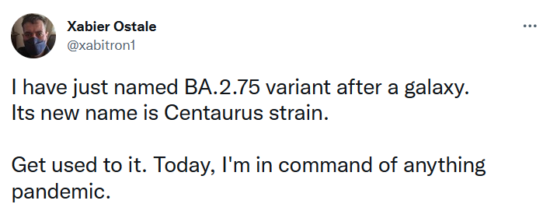
Non-pharma, good Georgia health news story of the week
August 17, 2022 ✒ Andrew Kantor
It’s been years (and years), but the FDA has finally approved a new category of over-the-counter hearing aids for people with mild to moderate hearing loss. Essentially they’re the audio version of non-prescription reading glasses. These are not to be confused with non-prescription hearing aids that are already available — those are technically “personal sound amplification products” … although to be fair it’s hard to figure out where the line is. A simple way to help reduce blood pressure: Use a different kind of salt — potassium chloride instead of sodium chloride (e.g., Morton’s Salt Substitute, NuSalt (“Vegan”!), or MySalt). A review by an international team of researchers confirmed that yes, everyone can lower their blood pressure by switching off sodium chloride. Or, if you want to sound smarter, “The beneficial effects of salt substitutes* on blood pressure across geographies and populations were consistent.” (Back in April we reported how switching to KCl could cut the risk of strokes. This new study expands that to general health.) Putting a Band-Aid (or other brand of adhesive bandage) on wet skin is … well, pointless. It just slides off. But Canadian engineers have found a way to force them to stick: ultrasound. It seems the right frequency makes microbubbles in the adhesive, causing to to adhere to skin like a clingy five-year-old in Ikea. Takeaway: Next time you spend a day at the beach, be sure to pack an ultrasound transducer in your first aid kit. (Bonus: The technology may not be game-changing, but they do call it “paradigm-shifting.”) Do you sell CBD products for pets? Maybe you should. Not that they necessarily do much, but because a new report expects “CBD pet products to see double-digit growth” through 2027. As pet and animal products are focused on treats, supplements and food additives, therapeutic CBD with antianxiety and anti-inflammation properties is expected to remain the top-selling product. Want the full report? You can get it here for just $4,750. Researchers at the University of Alabama and Syracuse University, after conducting a two-year trial, have figured out that sending parents personalized text messages (rather than mass communications like TV commercials) works better at reminding them to get their kids a second flu shot. The startling conclusion: [I]f the recipient does not delete the message, [it] allows for them to come back to the information later at their time and convenience. What does it cost to get eye docs to prescribe your brand-name drops over a generic? How about $65 a year? So say Johns Hopkins researchers who checked out the prescription and payment data. [T]he researchers concluded that practitioners receiving any amount of pharmaceutical company payment were 1.8 times more likely than practitioners receiving no payments to prescribe branded eyedrops more than half of the time. And, they say, this applies across the board — it’s not skewed by a few big subscribers, nor is it affected by location, age, or gender. The headline kinda says it all: “Dog catches monkeypox from owners after sleeping in their bed.” The WHO is planning to rename monkeypox to “avoid causing offense to any cultural, social, national, regional, professional, or ethnic groups.” They can’t specify who might find it offensive, because naming a particular group would imply a connection to monkeys … and that would be offensive*. If you have an idea for a name, you can create an account and submit it here. Think you don’t have to worry about monkeypox? A new CDC report found that “Monkeypox can persist in household environments” with viable virus samples persisting15 days after an infected person had left the home, especially on porous surfaces. (It’s not entirely surprising, they say; variola can remain viable for years in a cool, dry, dark environment.) Health-related apps and websites — including those of hospitals — collect loads of personal info. Some of them, it seems use that information in ways that violate their promises … or even the law. You might assume they share that data with some shady, bottom-feeding company that will use it for no good. And you’d be right; they’re sharing it with Facebook by using ad trackers that “followed the patients online and marketed to them based on those activities.” And it’s not just smaller healthcare companies. Hospitals are doing it too by embedding a Facebook tracker in their websites. Clicking the “Schedule Online Now” button for a doctor on the website of Froedtert Hospital, in Wisconsin, prompted the Meta Pixel to send Facebook the text of the button, the doctor’s name, and the condition we selected from a dropdown menu: “Alzheimer’s.” Here at Buzz HQ, we use the Privacy Badger addon for our Web browsers, which keeps most of those trackers at bay, and uBlock Origin to avoid seeing those pesky ads at all. They’re both free. Dogs with monkeypox, eye docs getting paid, who uses your health data, and more
Here come (more) OTC hearing aids
Easy BP control
* Here at Buzz, we don’t like the term “salt substitute.” It’s just a different *kind* of salt. Chicken is not a “meat substitute.”
Making the bandage stick
Their dogs want CBD
Captain Obvious prefers a letter
Cheap and easy
Monkeypox updates
Fido gets the floor

Name games
* Meanwhile, Legionnaires’ disease is still Legionnaire’s disease.
Here, have something to worry about
Sneaky info sharing
August 16, 2022 ✒ Andrew Kantor
A US Court of Appeals has ruled that Pfizer’s co-pay assistance program for its Vyndaqel and Vyndamax meds (tafamidis, if you’re being formal) violates the Federal Anti-Kickback Statute. The logic is that Pfizer is essentially saying to patients, “If you get this med (and we get $212,000 from the government), we’ll give you $13,000.” (Officially, Pfizer is offering to cover Medicare patients’ $13,000 co-pay.) Pfizer argued that, because tafamidis is the only med for a rare heart condition, co-pay assistance didn’t “improperly induce the underlying prescribing decisions.” In other words, it’s not as if patients were able to choose tafamidis over something else. The Office of the Inspector General disagreed, saying it didn’t matter whether Pfizer’s intent was good or evil — the goal of the co-pay program was to pay people to get the government to buy Pfizer’s meds. The court agreed with the OIG, and here we are. How will this affect other co-pay programs? Stay tuned. This is what you need to know: Americans, please form an orderly queue when going to Montreal to get a monkeypox vaccine. Know someone with kidney stones? You might recognize them by the pale complexion or the screaming in agony. You can taunt them by saying, “You know, having enough “calcium, potassium, caffeine, phytate, and fluid[s]” could have prevented that, according to researchers at the Mayo Clinic.” But if you feel like being nice, you can let them know that those same researchers narrowed down the details. It seems that you can prevent recurrence of kidney stones by making sure you have enough calcium and potassium in your diet. (Or as they put it, “Lower dietary calcium and lower potassium intake were predictive of symptomatic kidney stone recurrence.”) Shout-out to Shane Pruitt, GPhA member and director of recruiting and undergraduate advising at UGA’s College of Pharmacy, who was just featured in UGA Today. I didn’t think this could be done, but I’m not a Cambridge University researcher. They were able to change the blood types of three donor kidneys from type B to type O, the universal donor. How? They added an enzyme to blood that they pumped through the organs; it “removed the blood type markers that line the blood vessels of the kidney, which led to the organ being converted to type O.” As you might imagine, this is big news — especially for people with type B blood, because it’s uncommon enough to make finding donors much harder. It’ll be ready this month. The bivalent booster, called mRNA-1273.214, is designed to protect against the OG Covid virus as well as Omicron — including the BA.4 and BA.5 subvariants that are the current 800-lb. (57 stone) gorillas. And that’s why… The UK has approved it. The Medicines and Healthcare products Regulatory Agency (FDA with a British accent) is the first of the big approvals Moderna expects; it’s also submitted it to Australia, Canada, the EU, and the US. There’s a proven way to treat depression: deep brain stimulation of the prefrontal cortex. Problem: You need to drill holes into the patient’s skull to implant electrodes. Various ways to avoid the whole putting-holes-into-someone’s-head thing have been tried, with varying degrees of success. The latest comes from Hong Kong, where biomedical and electrical engineers have come up with a way to stimulate the prefrontal cortex without drilling holes, but maintaining almost the same level of disturbance. They go in via the eye. The call it “non-invasive stimulation of the corneal surface” or transcorneal electrical stimulation (TES). They tested it on animals and it… … resulted in remarkable antidepressant-like effects and reduced stress hormones in an animal model for depression. Furthermore, this technique induced the expression of genes involved in the development and growth of brain cells in the hippocampus. That does not look comfortable. Pro tip: If you find that someone in your pharmacy was in contact with a Covid-19 patient, don’t lock down your building and try to quarantine everyone. News of the flash shutdown sent shoppers fleeing and screaming in an effort to get out of the building before the doors were locked, videos on social media showed. According to pharma companies, capitalism is a one-way street, and it leads to their CEOs’ paychecks. Read how “Big Pharma Went All In to Kill Drug Pricing Negotiations” — and how it’s used the same (wrong) argument for a long long time. The drug industry warns that any price negotiation will kill innovation. Such warnings “constitute the pharma response in literally every instance since 1906,” the year the first drug regulation agency was created. Fun fact: The Affordable Care Act was also supposed to “kill innovation,” and yet pharma companies are reaping record profits. Go figure. Changing an organ’s blood type, calcium stops stones, treating depression through the eye, and more
Court nixes copay assistance
Immunization training: less than a week to go
The French-Canadian connection
People with good calcium shouldn’t get stones
Shaaaaaaaaaaane
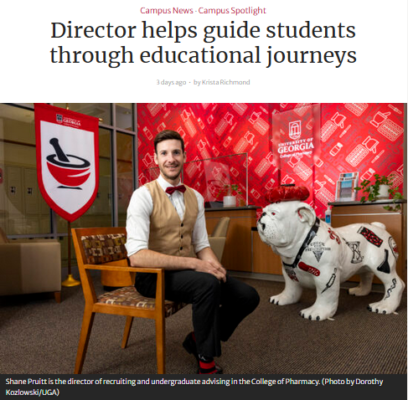
Kidneys get their ‘O’ face
A bit about Moderna’s booster
Here’s electrodes in your eye
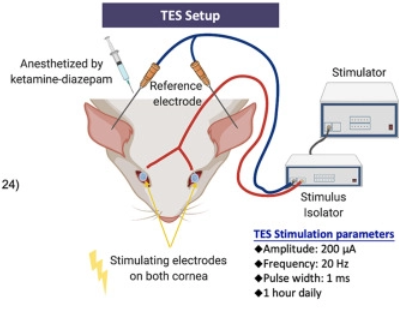
Business 101
The Long Read: Same Old Song edition
August 13, 2022 ✒ Andrew Kantor
Imagine spending millions on TV ads that annoy the heck out of people, only to find that no one remembers your name? Welcome to the world of diabetes-drug marketing. A new survey found that despite huge spending by companies like Eli Lilly and Novo Nordisk, “patients struggle to remember the drugs’ names.” Jardiance? (shrug) How about … metformin? Yep, that one they know. Fundamentally, said one researcher, “they won’t care whether they are on, say, Jardiance or AstraZeneca’s Farxiga, because those names have little meaning for them.” Amusingly, a new paper just came out of Johns Hopkins claiming that direct-to-consumer ads actually work. Or as they put it: Brief exposure to prescription drug advertisements has a large and positive association with medication-related demand intentions. Baloxavir Marboxil — it’s not just the winning play in the 2019 Lithuanian Scrabble Championship. It’s also the latest drug approved by the FDA for treating kids (5 to 11.99 years old) who have the flu. In fact, it’s the “first single-dose oral medication approved for treating flu in children of this age group.” Just be sure they’ve had symptoms for fewer than 48 hours. Who needs drugs to treat pain when you have sound? And electricity? Not guinea pigs, that’s who. Using a combination of pulses of “broadband sound” (tones ranging from 625 Hz and 40 kHz) and a bit of electrical stimulation, University of Minnesota researchers … … found that the combination of the two activated neurons in the brain’s somatosensory cortex, which is responsible for touch and pain sensations throughout the body. They used needles to send the current, but they say it could be done non-invasively with one of those TENS* units you might even sell in your pharmacy. “Johnson & Johnson plans to halt talc sales worldwide”. The PR person says: “Vitamin D supplementation seems to alleviate depressive symptoms in adults”. The gist is: A meta-analysis out of Finland found “that vitamin D supplementation may alleviate depressive symptoms in adults with depression.” But the study’s lead author says: “[T]he certainty of evidence remains low.” Yet, he adds, it’s worth doing a proper study: “These findings will encourage new, high-level clinical trials in patients with depression in order to shed more light on the possible role of vitamin D supplementation in the treatment of depression.” The Covid-19 pandemic isn’t over. The latest CDC data shows cases dropping … but still 100,000 Americans are testing positive per day, including 20 Georgians. And that’s just the ones we know about. There are more than 40,000 Americans currently hospitalized with Covid (1,800 in Georgia), and 300 to 400 die every day. (That’s lower than the peak, but higher than this time last year.) More than a million* Americans have died since the pandemic began — including almost 38,000 Georgians. If you think you’ve been exposed to Covid-19 and you have symptoms, one negative result from a home test isn’t enough, says the FDA. No, two isn’t enough either. The number of the counting shall be three negative tests 48 hours apart to be sure you’re not exposing others. (If you’re symptom-free but have been hanging out with someone who’s sick, then two should be enough.) This only applies to the rapid-antigen home tests (available free via the gummit at Covid.gov/tests), not the super-accurate PCR tests that are sent to a lab. https://www.youtube.com/watch?v=bEcjFRB-1C4 Biomedical engineers in California have created a prototype contact lens that can detect cancers. They can capture exosomes in a wearer’s tears and analyze them for cancers. The lenses are made with thousands of microchambers containing gold nanoparticles that [insert science magic here] and can thus detect antibodies associated with cancer. (Essentially it’s just a simple way to analyze tears, which the team — from the Terasaki Institute for Biomedical Innovation — say are a better source of exosomes than blood, urine, or saliva.) There’s no cure for tinnitus, but there may be an app for treatment. Kiwi researchers have created a “digital polytherapeutic” — aka, an app, bone conduction headphones, neck pillow speaker, and an audiologist to help personalize that app. The app plays various sounds to mask the tinnitus, relax the patient, and retrain the ear, asking for feedback along the way (e.g., “Which ear do you hear the shaver in?”) to adjust the therapy. “What this therapy does is essentially rewire the brain in a way that de-emphasises the sound of the tinnitus to a background noise that has no meaning or relevance to the listener.”Electric pain treatment, why you need three Covid tests, no one knows diabetes meds, and more
Full of sound and fury, signifying nothing
Trulicity? (shrug)
Januvia? (shrug)New kids’ flu med
Sound and electricity vs pain
* Transcutaneous electrical nerve stimulation, in case you’re unfamiliar
I didn’t know they were still selling it
Can D help depression?
Lest we forget
* A bare minimum of 1,030,777, but certainly more.
Three is a magic number
Look into my eyes (for cancer)
Tinnitus-fighting app
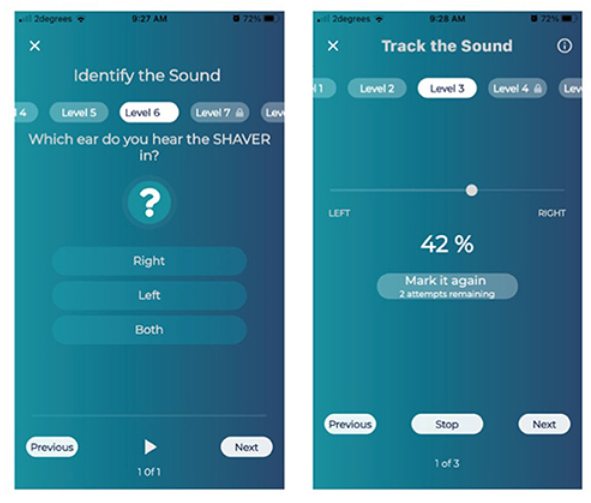
August 12, 2022 ✒ Andrew Kantor
A new virus — Langya henipavirus (LayV) — has infected dozens of people in China. (“Dozens” = 35.) The question: Is this a legitimate concern, or are we on viral hair-triggers because of, you know, other viruses? The answer, per the GPhA Buzz Crystal Ball™, is … it’s probably nothing to worry about unless you’re a cable news producer looking to fill time. Do you want to worry? Fine, here: “[Other] henipaviruses, like Nipah and Hendra, are known to cause severe illness in humans and animals, with death occurring in 40 to 70% of cases” according to the CDC. A federal judge has ruled that Walgreens contributed to the opioid crisis in San Francisco by dispensing ”hundreds of thousands of red flag opioid prescriptions without performing adequate due diligence.” The sort-of twist is that the ruling is that it’s the company’s fault, not the employees’: “The evidence showed that Walgreens did not provide its pharmacists with sufficient time, staffing, or resources to perform due diligence on these prescriptions.” Walgreens said it plans to appeal, and that it didn’t actually make or market the pills — it just didn’t keep track of how many it was dispensing. Your enemies are in prison, your friends are all French ambassadors. Now it’s time to think: What new pharmacy-related laws should Georgia have? GPhA needs your ideas as our advocacy team prepares for the 2023 legislative session. Our best legislative priorities come from members. You folks are on the front lines, after all, but you have to tell us. And GPhA gets it done with an unmatched record of results: Most of these ideas came from members who told someone on the advocacy team, “There oughta be a law.” If there’s a law or policy issue you want to see changed — something that will improve patient care or the practice of pharmacy — tell us about it! It’s super easy — barely an inconvenience: E-mail your idea to VP of Public Policy Melissa Reybold at mreybold@gpha.org. Yes, it’s that simple. “Dear Ms. Reybold, there’s one law I think Georgia really needs….” Give as much info as you can without boring her. All right, we’ll make it a little harder: You have to do it by 5:00 pm this coming Saturday, August 13. The latest drug that will upend the antibiotic landscape is … fabimycin. Never heard of it? That’s because it’s a new compound developed at the University of Illinois at Urbana-Champaign. Chemists there took an antibiotic that worked against gram-positive bacteria, did a little science to it, and created one they say works against those nasty gram-negative bacteria. And really well, too, fighting off 300 drug-resistant bacteria. “[Fabimycin] proved potent against more than 300 drug-resistant clinical isolates, while remaining relatively inactive toward certain gram-positive pathogens and some typically harmless bacteria that live in or on the human body.” Will we ever hear of it again? After more research, perhaps. Saliva of veterans suffering from Post Traumatic Stress Disorder contains a specific microbiotic signature. That is, it might be possible to test someone for PTSD by looking for a particular combination of bacteria in their saliva. Fun side facts: The Israeli researchers who discovered this also noted that 1) “the saliva bacteria of those exposed to air pollution showed a correlation to the picture with PTSD,” and 2) more education seemed to provide a “protective influence.” “New Study: 36% of YouTube Videos Contain Misleading Hay Fever Information” (The real shocker: “43% of videos on allergic rhinitis contained useful information.”) People with higher levels of cholesterol and fatty acids in their blood are more likely to suffer longer from diseases, and that includes being more likely to have long Covid. British researchers found that, Covid or not-Covid, if someone’s symptoms took longer to disappear, they were like to have the same pattern of harmful fats in their blood. “The blood markers in asymptomatic people had a healthier pattern that we know is associated with a lower risk of heart attacks and diabetes. The people with long-lasting symptoms showed higher levels of ‘bad cholesterol’ and unhealthy fatty acids.”Walgreens gets blamed, fast PTSD test, trusting YouTube videos, and more
Here we go again?
Walgreens loses in SF trial
Imagine you’re a tyrant

The next next antibiotic
Saliva test for PTSD
Captain Obvious says “Gesundheit”
Bad blood, long symptoms
August 11, 2022 ✒ Andrew Kantor
“Almost a Third of Patients Don’t Take Drugs as Directed” says a new study out of Canada, and if that many Canadians aren’t taking their meds, can you imagine what it’s like here? In a study that examined more than 200,000 patients and 91,000 unique prescriptions, overall nonadherence rates ranged from 13.7% for patients prescribed antidepressants to 30.3% for patients prescribed antihypertensive therapies. What’s the problem? It might be cost (Canadians’ healthcare is paid for by the government, but not prescriptions), but the researchers say that they just don’t know. “We assume that people are following our instructions. We’re often giving people second and third prescriptions before we even check if they’re taking their first one.” Get 20 hours of CE (!), the world’s best update on immunization skills, and a certificate to impress your patients — all from GPhA, starting August 21, with APhA’s Pharmacy-Based Immunization Delivery: A Certificate Program for Pharmacists. This ever-popular certificate training program prepares pharmacists with comprehensive knowledge, skills, and resources necessary to provide immunization services to patients across their lifespan — skills you need now more than ever. Sunday, August 21, 2022 8:00 am – 5:00 pm Georgia Pharmacy Association Classroom CLICK HERE for more information and to register! When a drug maker tests a drug, one thing it probably doesn’t consider is the patients’ posture. And yet (Johns Hopkins researchers realized), all those fluids churning around the stomach must have an effect. “When the pill reaches the stomach, the motion of the stomach walls and the flow of contents inside determine the rate at which it dissolves. The properties of the pill and the stomach contents also play a major role. So they built … StomachSim, a stomach-simulation computer program. (Sorry, “a biomimetic in-silico simulator based on the realistic anatomy and morphology of the stomach.”) Their goal is to use it to figure out how the position of the stomach might affect the absorption of medication — “unique insights into the complex physiological processes behind the oral administration of pills.” When it comes to improving how asthma patients use their inhalers, who do you think is a good choice? Why yes, as a matter of fact it is pharmacists. Granted, the folks at the Cleveland Clinic did more case studies than study-studies, but their conclusion sure makes sense. They tested the effect of having a pharmacist demonstrate and check inhaler technique before hospital discharge, then again at a follow-up visit. Result: Fewer errors and fewer problems. Fun facts: “exhalation before inhalation” was the most common error, followed by patients not holding their breath after inhalation. A new international study found that “a median of about 66,000 people are infected with [SARS-related coronaviruses] each year in Southeast Asia,” and that “suggests that bat-to-human SARSr-CoV spillover is common in the region, and is undetected by surveillance programs and clinical studies.” The good news: Many of those strains that infect humans “may not be able to replicate well in people, cause illness, or be transmitted sufficiently among people to cause an outbreak.” The bad news: “Many.” (Above link goes to the paper in Nature Communications. For the short news story, click here.) Giving fluoroquinolone to patients with chronic kidney disease increases their risk of an “adverse event” — and higher doses lead to higher chances. What kind of adverse event? We’re talking hospital visits for “nervous system and psychiatric disorders, hypoglycemia, or […] collagen-associated events.” The rate isn’t high, thankfully — around 0.9% on a low dose or 1.2% on a higher one, but still, that’s 1 out of 100 patients being hospitalized, and it’s not considering fluoroquinolone’s other possible side effects: aortopathy, arrhythmia, hyper- or hypoglycemia, neuropathy, or tendinopathy. This suggests, say the Canadian researchers who did the study, “that fluoroquinolones should be prescribed cautiously and at lower doses among older adults with advanced CKD.” British bioscientists say they’ve found a way to treat a cause of asthma, rather than just its symptoms, and it could lead to long-term treatments. The target: pericytes, stem cells in the lining of blood vessels. During an asthma attack, they move to the airway walls and then do what stem cells do — they turn into other cells. Like, for example, muscle cells, which tend to block the airways. What the Brits found is that 1) pericytes get the signal to move to the airways via a protein called CXCL12* and 2) a molecule called LIT-927 can block that signal. Asthmatic mice that were treated with LIT-927 had a reduction in symptoms within one week and their symptoms virtually disappeared within two weeks. The researchers also found that the airway walls in mice treated with LIT-927 were much thinner than those in untreated mice, closer to those of healthy controls. The usual mantra: “[F]urther research is needed before we can begin to test this in people,” including determining dosage, timing, what other effects LIT-927 might have, and what cool name they can give it. Combining drugs to treat osteoporosis (especially the postmenopausal kind) is often the best treatment. But which drugs? There’s no clear answer. Why not? Maybe because no one thought to ask the computer. Until a group of German researchers, that is. Using evidence of how bone is broken down and renewed, and how different kinds of osteoporosis medications work, they “built a mathematical model of bone renewal that predicts the effects of various osteoporosis medications in postmenopausal women.” They literally created an equation for osteoporosis: Then they tested it on various med combinations — and even the order those combinations were given. And that led to a surprising (and useful) finding: They […] found that combinations that cause the most rapid increases in bone density do not always strengthen bone in the long term and can instead cause a rebound of accelerated bone loss after the treatment stops. The end result wasn’t The Answer for the best meds combo for osteoporosis. The goal is to inform clinical trials that can confirm what the computer came up with, and hopefully design personalized treatment plans. Is prolonged skin-to-skin contact the only way it spreads? (Not exactly.) And how did the virus change to make this outbreak different? (It didn’t.) The details are in “What scientists know — and don’t know — about how monkeypox spreads” from Stat.Electronic stomach, lots more SARS infections, teaching to inhale, and more
I thought it would have been higher
Pharmacists: Your hot immunization date is coming
SimStomach
Teaching technique
Something to look forward to in an upcoming season
Fluoroquinolone risks
Hitting asthma at its source
* Also a droid in the upcoming series, “Star Wars: Random Background Characters” on Disney+
Drug combo equation

The Long Read: The Spread of Monkeypox edition


